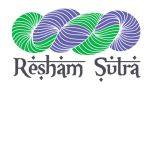Cause Area
Geographies Served
Programs
-
Economic impact
District
New Delhi
Ranchi
States
Delhi
Jharkhand
Annually injecting Rs. 500 million into the rural economy, this initiative has yielded substantial benefits. A staggering 94.5% of end users have witnessed a significant upturn in their income, with an average household income increase of 67%. Beyond financial gains, it has enabled families to build better homes and allocate more resources to healthcare and education. Furthermore, it has elevated the stature of women within households and communities. Many women have experienced a shift in their entrepreneurial mindset, diversifying their investments into livelihood options such as cattle stock and farmland irrigation. This evolution has seen them transition from individual operations to the formation of producer groups, further fostering economic growth and sustainability.
-
Environmental impact
District
New Delhi
Ranchi
States
Delhi
Jharkhand
Themachines contribute to avoiding an annual emission of 7,000 tons* of greenhouse gases, aligning with the organisation's commitment to environmentally responsible practices. Natural yarn and fabric production inherently prioritize eco-friendliness, devoid of harmful chemicals or energy-intensive processes. To bolster sustainability, it actively promotes natural dyeing methods, minimizing chemical usage. Furthermore, those engaged in these activities play a vital role in mitigating pollution, offering a cleaner alternative to conventional livelihoods that may have otherwise contributed to environmental degradation.
-
Social impact
District
New Delhi
Ranchi
States
Delhi
Jharkhand
The introduction of these machines has liberated women from demeaning practices like traditional 'Thigh reeling' of silk yarn, deeply entrenched in the states of Bihar, Chhattisgarh, Jharkhand, and Odisha for generations.
This transformation has brought about significant improvements in both the social status and health of these women. They now work with a sense of dignity and anticipate brighter prospects for their future. Moreover, they are enthusiastic about involving their daughters and other family members in this work willingly.
Registration Details
-
CSR Form 1
Not Available
-
FCRA
Not Available
About
-
Headquarters
New Delhi, Delhi
-
Since
2015
Impact
20,000 machines installed in 350 villages and 16 states. 40,000 people impacted. 100 acres of mulberry planted in tribal villages. 6,800 tons of CO2 offset annually by solar power.
Vision and Mission
Resham Sutra's mission is to bring innovations that improve productivity and quality to bring greater income and comfort for rural producers, with a vision of enabling, empowering and organizing underprivileged rural artisan communities locally towards self-sufficiency and financial independence.
Political & Religious Declarations
-
Political Affiliation
-
Religious Affiliation
Location
-
Offices in Cities
New Delhi, Ranchi
Other Details
-
Type
For-profit
Website
Technology Adoption
-
SOC 2 Compliant
No
-
Financial Management
-
Beneficiary Management

